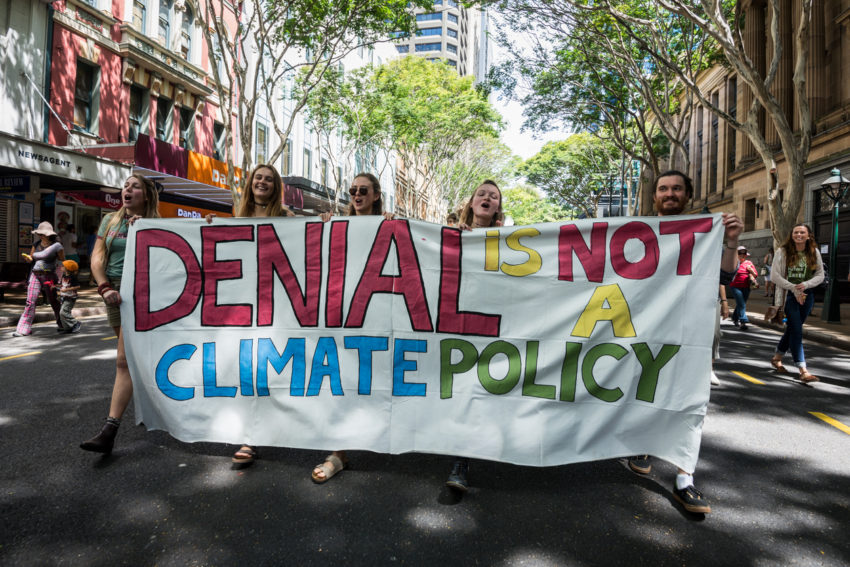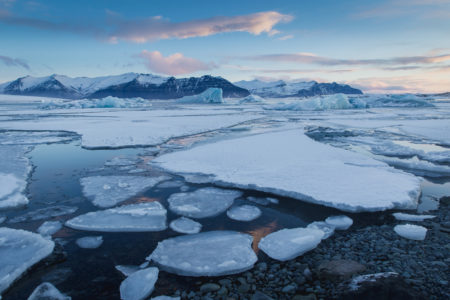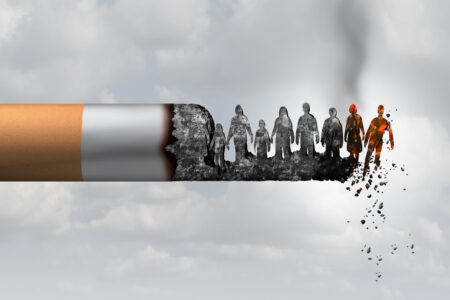
Share On Social!
Since taking office, the Trump administration has made numerous moves that reduce the government’s role in combating climate change – including scientific research.
In April, the United States Geological Survey (USGS) announced it would no longer project climate change’s long-term impacts. This means a reduction in our understanding of the issue’s full scope could occur as a result.
In response, 1,505 members of the Salud America! network sent USGS Director James Reilly a message: Do not limit climate science by limiting the data researchers collect.
Other individuals and groups also spoke out against this decision. A coalition of 20 Senators— including Kamala Harris and Dianne Feinstein—sent Reilly a letter that shorter projections would make it harder to gauge and prepare for future impacts.
“We are writing to express deep concern over recent reporting that the USGS will only be utilizing climate models that project the effects of climate change through 2040, rather than the previously accepted practice of using models that project through the end of the century,” the Senators wrote. “This decision appears to be another in a long line of politically motivated moves within the Department of the Interior, and more broadly across this administration, to suppress climate change science.”
Limiting Climate Science
Government officials stated this move is one that will help reduce environmental alarmism.
“The previous use of inaccurate modeling that focuses on worst-case emissions scenarios, that does not reflect real-world conditions, needs to be thoroughly re-examined and tested if such information is going to serve as the scientific foundation of nationwide decision-making now and in the future,” James Hewitt, a spokesperson for the Environmental Protection Agency, told the New York Times.
 The reason many find that unsettling?
The reason many find that unsettling?
Most researchers note that many of the devastating changes, such as 35 U.S. cities being underwater by the end of the century, won’t come until after 2100.
“The scenarios in these reports that show different outcomes are like going to the doctor, who tells you, ‘If you don’t change your bad eating habits, and you don’t start to exercise, you’ll need a quadruple bypass, but if you do change your lifestyle, you’ll have a different outcome,’” Katharine Hayhoe, the director of the Climate Science Center at Texas Tech University and an author of the National Climate Assessment, told the New York Times.
The other issue is this is just one in a series of actions that reduce the U.S.’ efforts to fight the rising tides of climate change.
Two years ago, President Trump announced the U.S.’s withdrawal from the Paris climate agreement, an international pact to combat climate change. Since that time, the EPA has also announced rollbacks on clean air, water, and groundwater regulations, which frequently have a more significant negative impact on Latino populations.
Movement Forward, or Lack Thereof
Despite an outcry by members of the public and notable elected officials, the USGS has made no sign of reversing the new 2040 rule anytime soon.
Worse, many, including the coalition of Senators, say this problem limits the public’s understanding of climate change’s potential, dangerous impacts.
 “Hiding this information from the American public not only paralyzes the ability to execute informed decision-making today to reduce future emissions impacts, but would be further compounded by the administration’s intent to leave the ‘worst-case scenario’ out of future assessments and their attempt to discredit this scenario in the [National Climate Assessment],” the Senators wrote.
“Hiding this information from the American public not only paralyzes the ability to execute informed decision-making today to reduce future emissions impacts, but would be further compounded by the administration’s intent to leave the ‘worst-case scenario’ out of future assessments and their attempt to discredit this scenario in the [National Climate Assessment],” the Senators wrote.
Salud America! will continue to cover climate change, especially air quality and its disproportional impact on the Latino population.
“This is particularly concerning given how our current emissions pathway most closely follows the ‘worst-case scenario,’ and that if, as the [National Climate Assessment] warns, fossil fuel use continues unrestrained, ‘the earth’s atmosphere could warm by as much as eight degrees Fahrenheit by the end of the century,’ which would result in catastrophic societal issues that include decreasing food production and negative impacts on public health,” the Senators wrote in their letter.
Editor’s Note: This article is part of a collaboration between Salud America! and the Hoffman Toxicant-Induced Loss of Tolerance (TILT) program at UT Health- San Antonio. To find out if you are TILTed due to exposure to everyday foods, chemicals, or drugs, take a self-assessment or learn more about TILT.
Explore More:
Chemical & Toxic ExposureBy The Numbers
1
Quick Survey
Can help you find out how chemically sensitive you are



